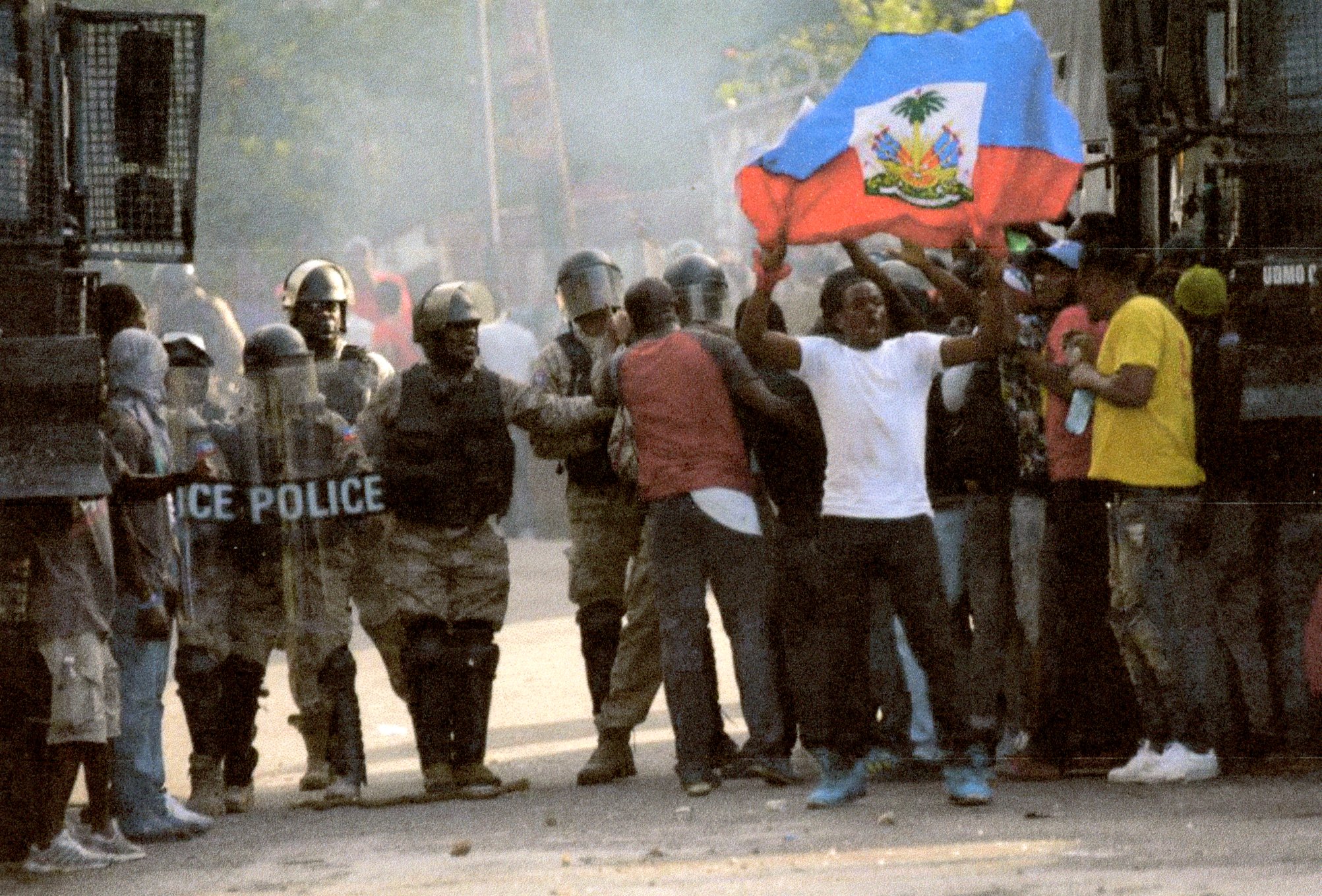Haiti, revisited
In December, 2003, and again in March, 2006, I had two opportunities to visit wonderful ordinary people in the country of Haiti.
In 2008, four disastrous tropical storms hit Haiti in August and September. Two years later, Haiti advocates grieved together as Haiti suffered through the unimaginable. tragedy of the earthquake of January, 2010; thence the cholera epidemic later the same year.
Today the news from/about Haiti is not good. Visual and written messages mitigate against travel there (below photo). One wonders what is ahead for these long suffering and wonderful people.

Nothing ever is simple as it seems, including such as the above photo.
In 2003 and 2006 I had an opportunity to learn more about Haiti’s history, and Haitians generally, on the ground, in Haiti itself, from Port-au-Prince into the interior of the country.
Succinctly, I appreciated the Haiti contacts. But with friends like our own U.S. policy, Haitians don’t need enemies.
Haiti became an independent and free state in 1804, the culmination of a revolt of slaves against France. Haiti was then France’s richest colony, so the loss was severe.
But victories have consequences. In my understanding, one of the early resolutions of the U.S. government was to not recognize Haiti as a country. We were a slave owning country, and the idea of freed slaves was not attractive. We did not recognize the country as a country until 1862. It was years before Fredrick Douglass was called into action to represent the U.S. in Haiti. For reasons outlined in the linked article, Mr. Douglass’s time was not productive, for reasons not at all because of Douglass..
From 1915-34. the U.S. occupied and controlled Haiti, essentially as a colony. In 1957, the to-be dictator Francois Duvalier ascended to power and curried favor with the U.S. as an anti-communist, later followed by his son, “Papa Doc”. The U.S. was never far in the background.
In 1990 came the first democratic election, in which Jean-Bertrand Aristide won election. A coup threw him out of office, and he was restored in 1994; finally to be deposed for good at the end of February, 2004, two months after my first visit to Haiti.
Essentially, it seems that Haiti became something of a ward of the United Nations, with the approval of the United States. In the final coup of 2004, the U.S., France and Canada were key actors.
Of course, there is irresolvable arguments about who was responsible for what. The ultimate results are what we see today – a country in chaos.
I write now because last evening we had the opportunity to meet with a few Haiti advocates in Minnesota. It was a very good meeting. Anyone interested in participating, please let me know and I’ll pass word along to the organizers.
As for myself, in the wake of my time of activism on Haiti I wrote some reflections about the country and the people as I saw it. You can explore the link here.
NOTE, the blog mentioned at the beginning of the referenced page, OutsideTheWalls, has been replaced by this page, ThoughtsTowardsABetterWorld. Enter the search word “Haiti” and you’ll find reference to 118 posts which at minimum mention the word “Haiti”. While I am no longer engaged actively in Haiti activities, I am still in solidarity with the fine people living there.

Leave a Reply
Want to join the discussion?Feel free to contribute!